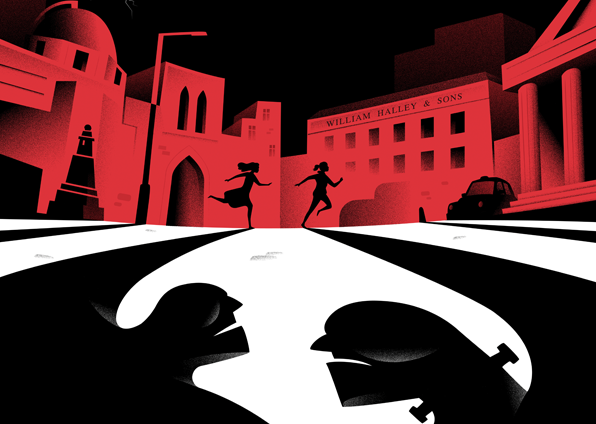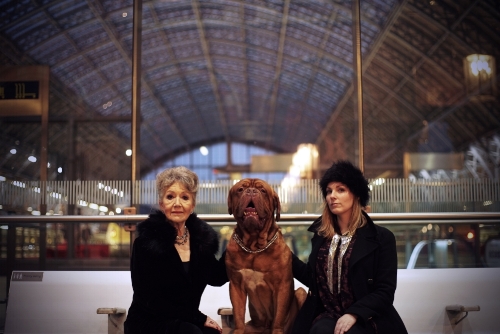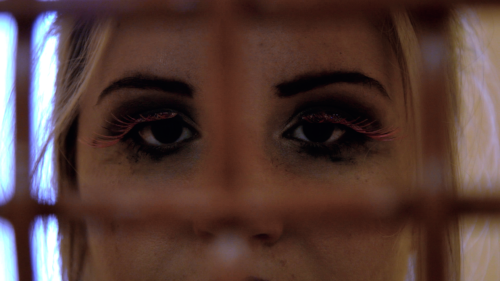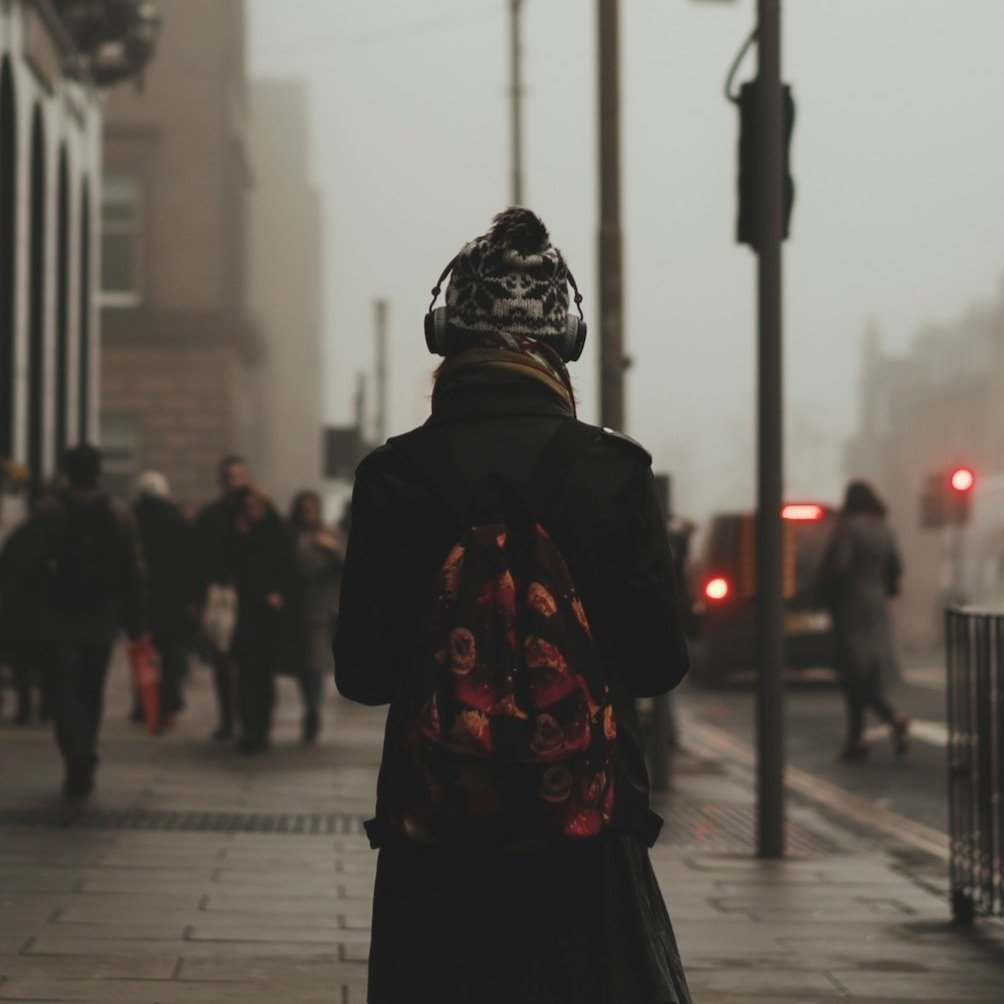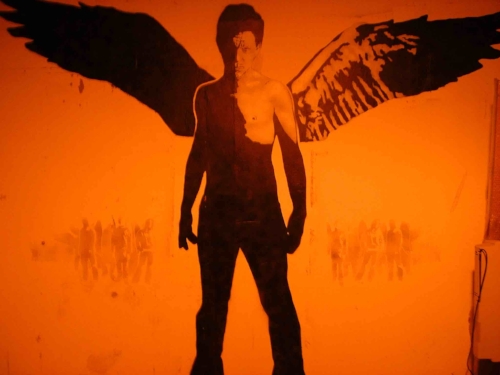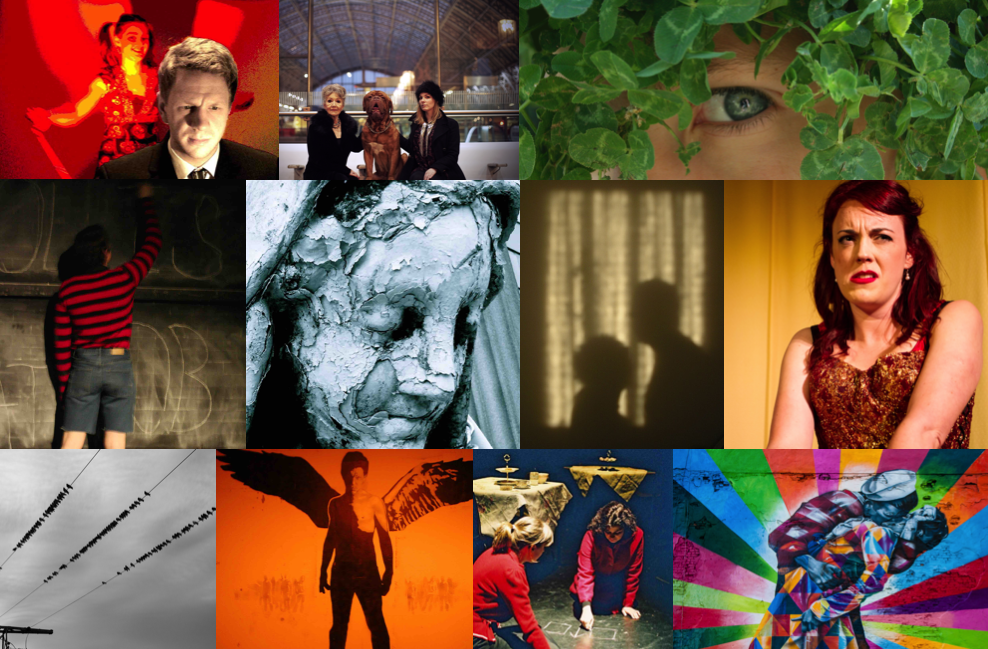Monstrous Bodies Review
The Stage, Thom Dibdin
★★★★★
‘Exilherating, fierce theatre performed with passion by a talented cast’
Sandy Thomson dives deep into Dundee's hidden history to create a powerful and triumphantly entertaining piece of theatre that speaks with a voice that is both local and universal.
The historic sections of Monstrous Bodies depict a young Mary Wollstonecraft Godwin's time in Dundee. She was sent there at the age of 14 to stay with the Baxter family, who had similar rad- ical and feminist political affiliations as her parents. In the modern strand of the story 14 year-old Roxanne Walker is due to give a talk on Mary in a week’s time, when she keels over drunk at a party and is photographed with her top down.
Thomson brings these two strands together as the Baxters' influence on Mary foreshadows her writing of Frankenstein. Roxanne tells this story as she gathers the inner strength to confront those who put her photo on Facebook. Thomson's production is suitably dynamic; Colin Low- son's sound draws on modern and classic pop music while Emma Jayne Park brings elements of music video to her choreography.
The cast includes members of Thomson’s own Poorboy Ensemble as well as Dundee Rep's 15- strong young company. The performances – led by Rebekah Lumsden's distressed Roxanne and Eilidh McCormick's precocious Mary, with Elaine Stirrat playing right-on librarian Liberty Smith – is near perfect.
The young company combine naturalism with a necessary sense of heightened reality. It brings an explosive buzz to the modern elements, while the two ensembles ensure that the intertwining plots remain distinct but intimately relevant to each other.
Monstrous Bodies Review
The Scotsman, Joyce McMillan
★★★★
It’s almost 35 years since Liz Lochhead launched her remarkable playwriting career with Blood And Ice, a play inspired by the extraordinary life and imagination of the woman who wrote Frankenstein, Mary Shelley. And now, out of the darkness of Dundee Rep’s beautiful, sweeping stage, comes another magnificent Shelley-inspired drama about the unending struggle for women’s rights and self-determination – a struggle which 200 years ago shaped the lives of Mary Shelley and her remarkable mother, the campaigner and writer Mary Wollstonecraft, and which continues unabated today, when despite so many gains over the last century, young women face brand new hazards of online abuse and hatred.
So Sandy Thomson’s powerful and fascinating new play – co-produced by Dundee Rep and Thomson’s own company, Poorboy Ensemble – intertwines two stories. One is based on the period in 1812 when young Mary Shelley, then aged 14 and still known as Mary Wollstonecraft Godwin, came to Dundee to live for a while with the wealthy but radical Baxter family. The other is the fictional but well-researched story of a 21st century Dundee teenager, Roxanne. She is preparing to give a school talk on Mary Shelley when her life is derailed by a popular leader of “lad” culture in her class, who takes a semi-naked photograph of her unconscious after a drunk- en party, and posts it on social media.
The scene is therefore set for a rich, passionate and sometimes slightly mind-blowing theatre experience, as the young Mary joins her kind and motherly Dundee hostess Marianne Baxter, eloquently played by the great Irene Macdougall, in fighting the pompous and sometimes deadly patriarchal arrogance that surrounds female lives in the early 19th century, while 21st century Roxanne searches desperately for the inner strength to fight the sense of humiliation and worth- lessness created by internet bullying.
Thomson, who also directs, uses all the resources of theatre to dazzling effect, washing the stage with fiercely contrasting lighting states and rowdy feminist rock music, and deploying a cast of 11, plus 15 young performers from the Rep’s Young Company, in explosive dance se- quences by Emma Jane Park that range from the slightly intrusive to the absolutely brilliant. And if the alternations between one story and another sometimes seem exhausting – and the Mary Shelley story is too melodramatic towards the end – Monstrous Bodies remains a breathtakingly ambitious piece of contemporary theatre, sustained by two magnificent central performances from Eilidh McCormick as Mary and Rebekah Lumsden as Roxanne, ruthlessly honest about the physical reality of women’s lives, and memorably courageous in facing the demons and dragons of misogyny that have been laid low by so many brave feminist fighters through the ages, but that still re- turn in every generation, to be confronted again.
Monstrous Bodies Review
The Herald, Neil Cooper
★★★★
A GIRL with shocking pink hair introduces herself as Liberty. She stands centre stage and in- vites everyone to keep their mobile phones on so they can take pictures of what follows. This isn’t what one might expect from a play advertised as being about Mary Wollstonecraft Godwin’s time in Dundee in 1812 before, as Mary Shelley, she introduced the world to science-fiction with her novel, Frankenstein. In the hands of the Poorboy company’s Sandy Thomson, however, one should expect nothing less.
Subtitled Chasing Mary Shelley Down Peep O’Day Lane, Thomson’s production of her own play charts Mary’s travails as a fourteen year old put into the care of the wealthy and quasi-progres- sive Baxter family. She juxtaposes this with a modern-day scenario involving Roxanne, a girl the same age as Mary. When a compromising photograph is taken of Roxanne without her knowl- edge, the talk she is preparing on Shelley sees her attempt to conquer her fears, just as Mary did.
The result is a dramatic sprawl of quick-cutting scenes that flit between nineteenth century melodrama and MTV-styled dance routines, with independent women at the heart of both. Played out over a split-level set, the combined might of the Dundee Rep and Poorboy acting ensembles are bolstered even more by a fifteen-strong young company of teenage performers. As Mary and Roxanne, Eilidh McCormick and Rebekah Lumsden are towers of strength across the ages, both to their peers and each other. In a high-octane study of how a moral high ground can be used as an excuse for misogyny, it shows how necessary it is now more than ever for young women to write their own story.


